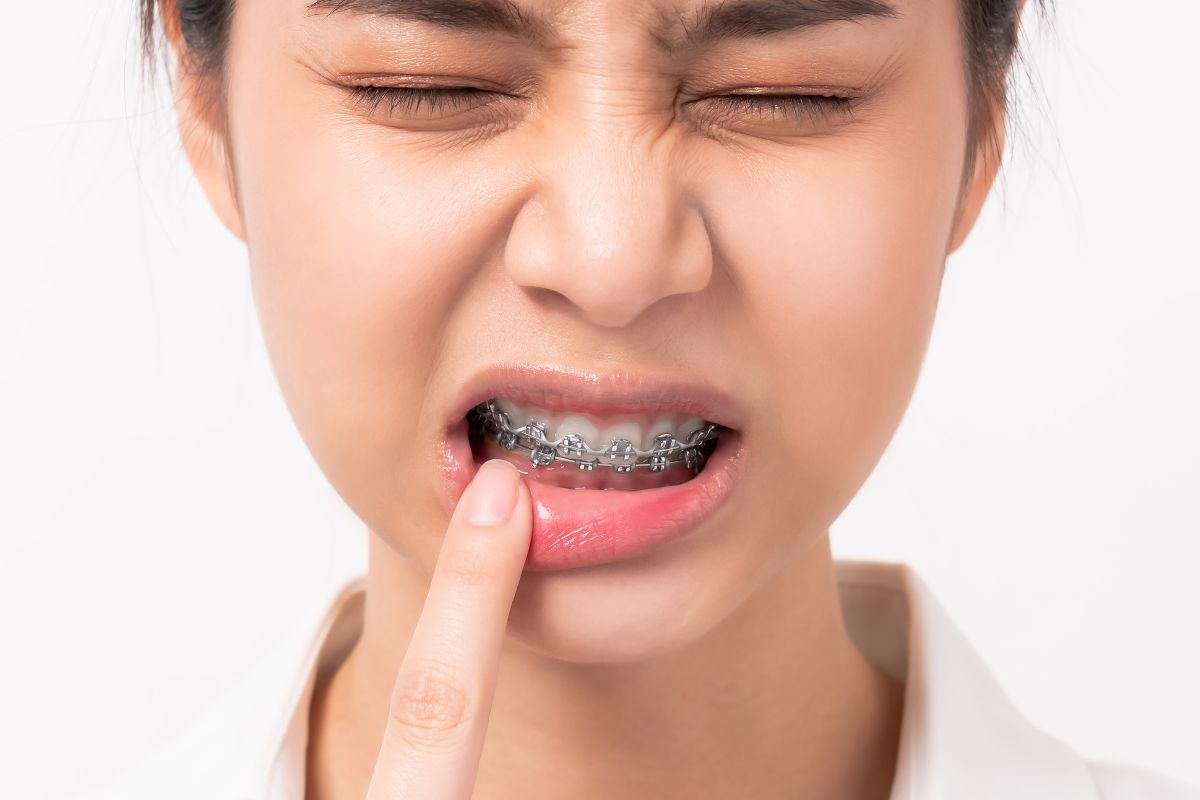Got Invisalign? If so, you might notice your teeth feel a bit more sensitive than usual. It's pretty common and can be annoying. Invisalign is super popular for adult orthodontics in Boston and beyond, but tooth sensitivity can be a downside. This article dives into why your teeth might be feeling extra sensitive and what you can do about it.
Key Takeaways
- Invisalign can cause temporary tooth sensitivity as teeth shift position.
- Using desensitizing toothpaste can help manage discomfort.
- Proper oral hygiene is crucial to minimize sensitivity during treatment.
- Consulting with your orthodontist can provide tailored solutions.
- Dietary choices can impact tooth sensitivity; avoid very hot or cold foods.
Understanding Tooth Sensitivity During Invisalign Treatment

Causes of Tooth Sensitivity
Tooth sensitivity can be a real pain, especially when you're trying to get that perfect smile with Invisalign. But why does it happen? Well, it usually boils down to a few things. First off, when your teeth start moving around, it can expose the dentin layer under the enamel, and that's where the nerves are. So, hot or cold foods can hit those nerves and cause that sharp pain. Another reason could be poor oral hygiene. If you’re not brushing and flossing like you should, you might end up with inflamed gums or even tooth decay, both of which can make your teeth sensitive.
How Invisalign Contributes to Sensitivity
Invisalign is a game-changer in orthodontics, but it’s not without its quirks. As your teeth shift with each new set of aligners, pressure is applied, sometimes exposing those nerve-rich dentin tubules. The aligners themselves don't cause sensitivity, but the movement they create does. For adults considering adult orthodontics in Boston, this process is often a small price to pay for long-term benefits.
Common Symptoms to Watch For
If you're dealing with tooth sensitivity during your Invisalign treatment, you might notice a few tell-tale signs. These symptoms include:
- A sharp pain when eating or drinking something hot, cold, or sweet.
- Discomfort when biting down or chewing.
- Sensitivity that seems to come and go, especially after switching to a new aligner.
If these symptoms persist or worsen, it might be time to chat with your orthodontist. For those seeking adult orthodontics in Boston, personalized care from a specialist can make all the difference.
Effective Strategies to Manage Tooth Sensitivity

Using Desensitizing Toothpaste
Using desensitizing toothpaste is a straightforward way to tackle tooth sensitivity during Invisalign treatment Chelsea patients rely on. These toothpastes contain compounds that help block the pathways through the teeth that attach to nerves, thus reducing sensitivity. It's a simple fix that you can incorporate into your daily routine.
Adjusting Your Oral Hygiene Routine
Tweaking your oral hygiene routine can make a big difference. Consider these changes:
- Use a soft-bristled toothbrush to avoid aggravating sensitive areas.
- Brush gently, focusing on technique rather than pressure.
- Avoid brushing immediately after consuming acidic foods or drinks.
These small adjustments are particularly important for adults undergoing adult orthodontics in Boston, as maintaining enamel health is key to a successful treatment outcome.
Consulting with Your Orthodontist
Don't hesitate to bring up sensitivity issues with your orthodontist. They can offer personalized advice and solutions. Whether it’s adjusting your aligners or recommending specific products, your orthodontist is a valuable resource. For those in adult orthodontics in Boston, regular consultations ensure you stay on track without unnecessary discomfort.
The Role of Attachments in Invisalign Sensitivity
What Are Invisalign Attachments?
Invisalign attachments, often small and tooth-colored, are bonded to certain teeth to help aligners grip better and apply the right amount of pressure. These attachments are strategically placed based on your specific dental needs and are crucial for achieving the desired tooth movement.
How Attachments Affect Sensitivity
Attachments can sometimes lead to discomfort or sensitivity. This happens because they create additional pressure points on the teeth, which can irritate the gums or make the teeth feel sore. Adults undergoing adult orthodontics in Boston might find attachments a bit bothersome at first, but the sensitivity usually decreases as their mouth adjusts.
When to Seek Professional Help for Tooth Sensitivity

Signs of Severe Sensitivity
While some tooth sensitivity is expected with Invisalign, there are times it can signal a bigger issue. For adults considering adult orthodontics in Boston, knowing when to seek help is crucial.
Here are some red flags:
- Sensitivity that drags on for more than a couple of weeks.
- Pain that doesn't just stick around but gets worse over time.
- Bleeding or swollen gums that look like they've had enough.
Consulting a Dental Professional
If you've ticked off any of the symptoms above, it's time to get a dental check-up. A dentist can:
- Identify the root cause of your sensitivity and offer tailored advice.
- Suggest treatments to protect your teeth, like fluoride varnishes or sealants.
Preventive Measures for Reducing Sensitivity
Maintaining Proper Oral Hygiene
Keeping your teeth clean is super important, especially when you're using Invisalign. Brush twice a day, and don't skip flossing. It's easy to forget, but those aligners can trap food and plaque. Proper oral hygiene is a cornerstone of successful adult orthodontics in Boston.
Dietary Considerations
What you eat can really affect tooth sensitivity. Try to cut back on acidic foods and drinks like soda, citrus fruits, and vinegar-based dressings. These can wear away your enamel, making your teeth more sensitive.
Conclusion
Dealing with tooth sensitivity during Invisalign treatment can be a bit of a hassle, but it's definitely manageable. For anyone pursuing adult orthodontics in Boston, the temporary discomfort of sensitivity is worth the long-term benefits of a straighter, healthier smile.
If sensitivity persists, don’t hesitate to consult your orthodontist at Smilebar. A quick visit can ensure you’re on the right track while enjoying all the perks of Invisalign.
%202.svg)
.png)


